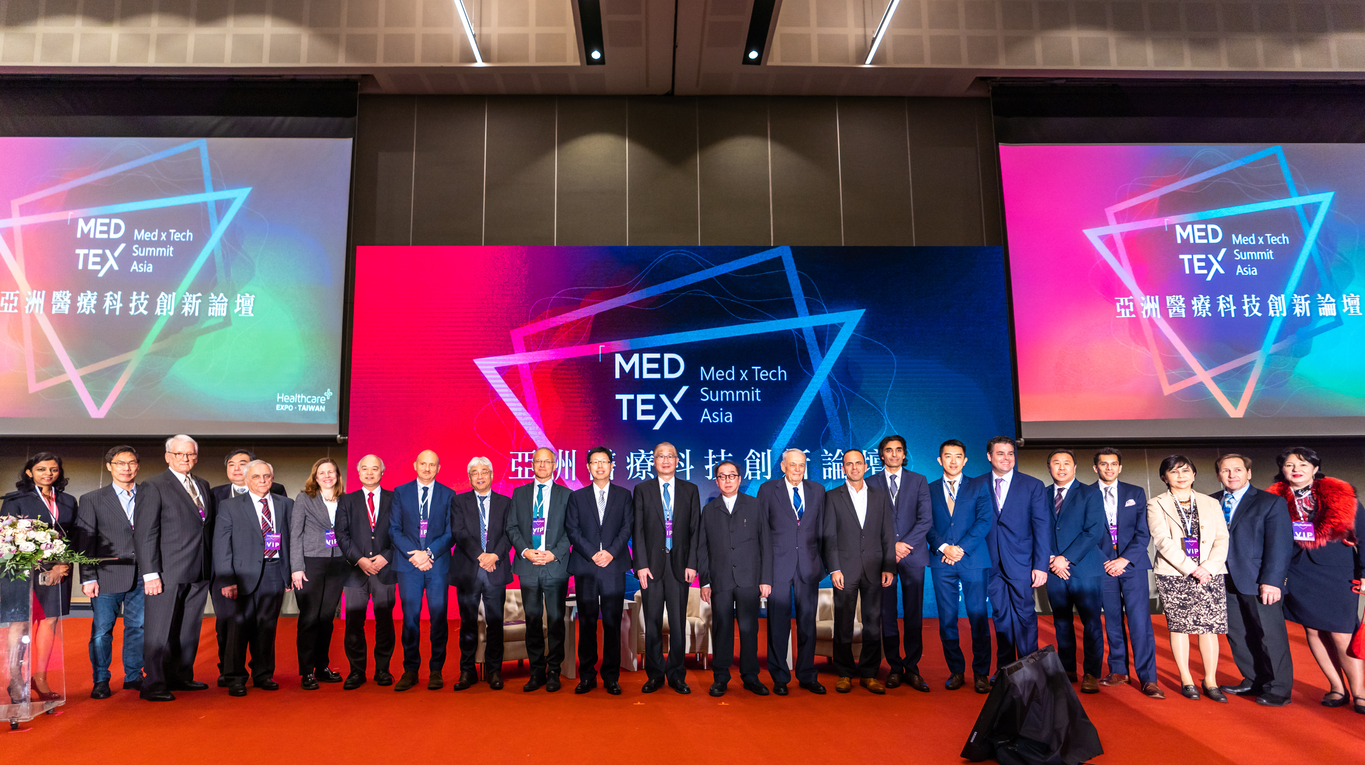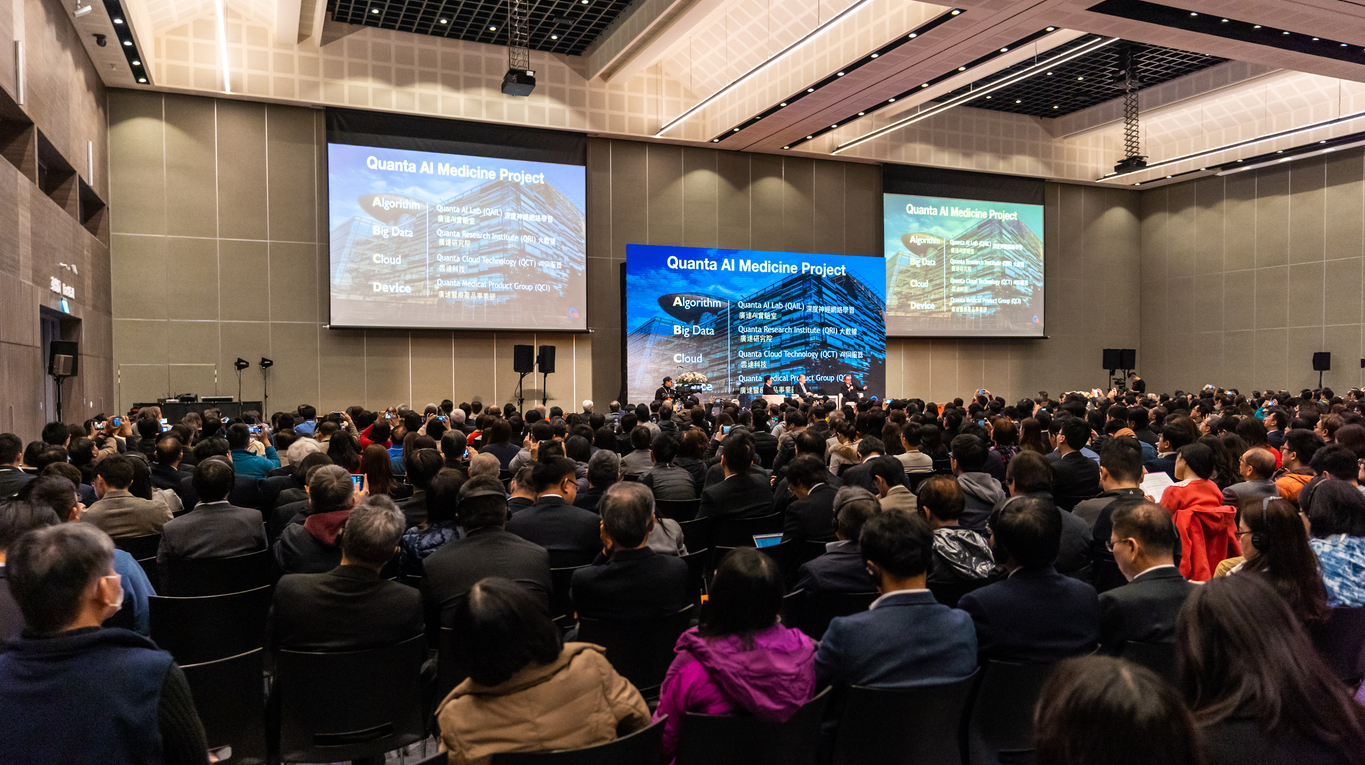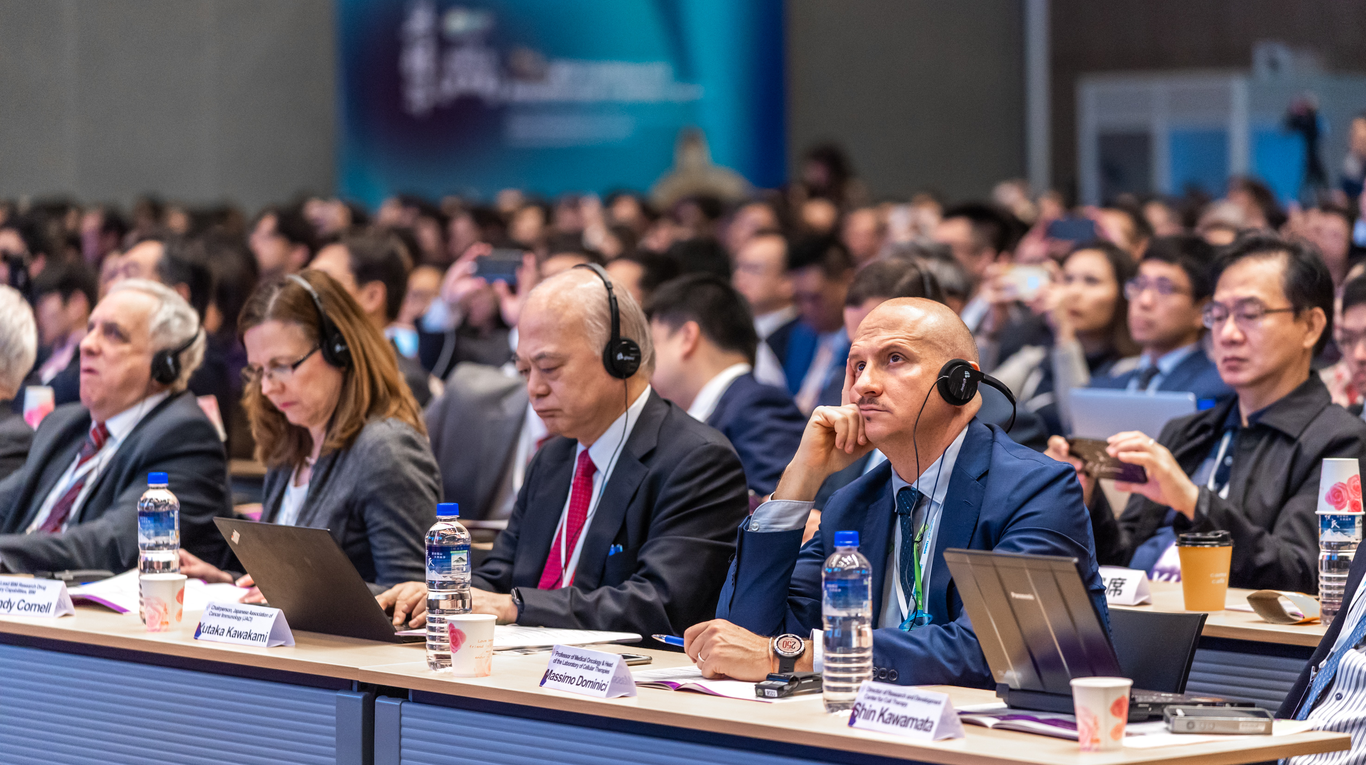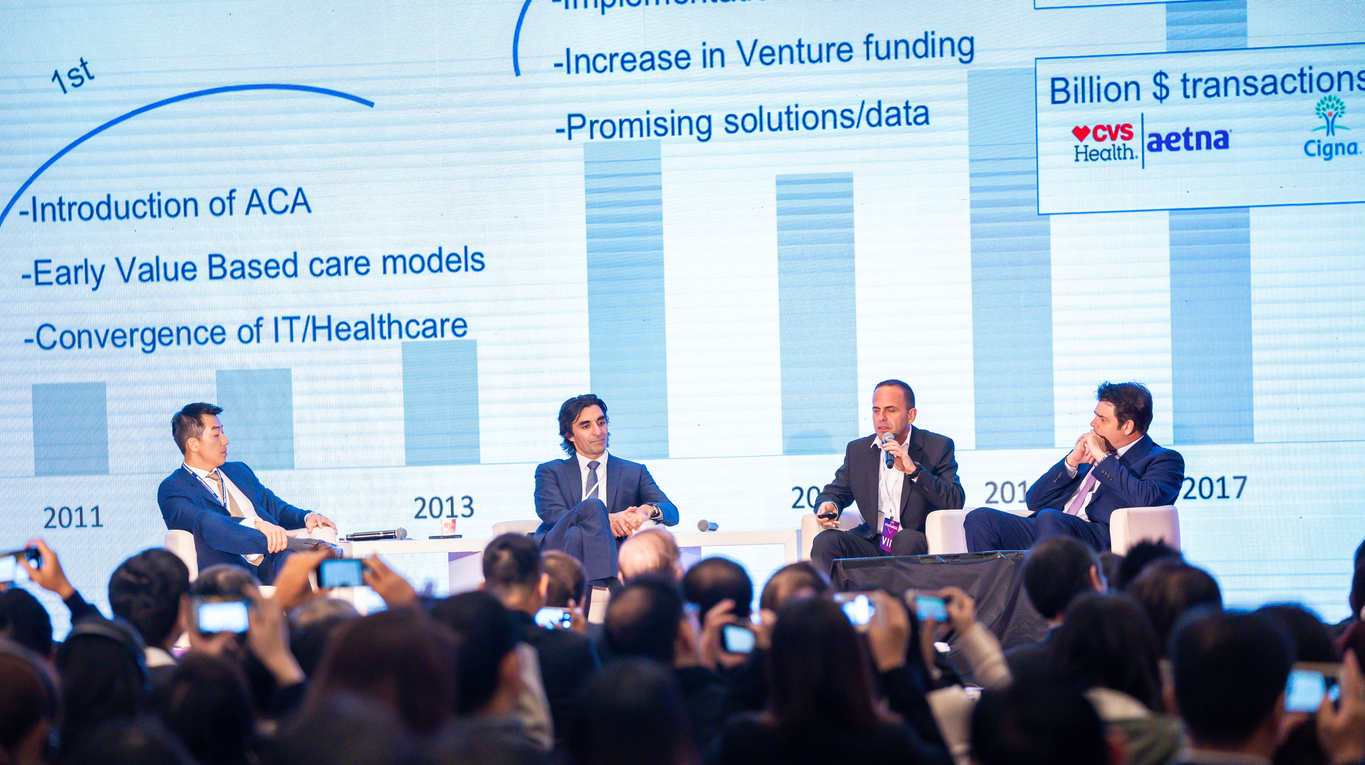
2019 MEDTEX Summit Asia Recap: Foresee the next wave of healthcare revolution
2020-01-03
Opening Remarks
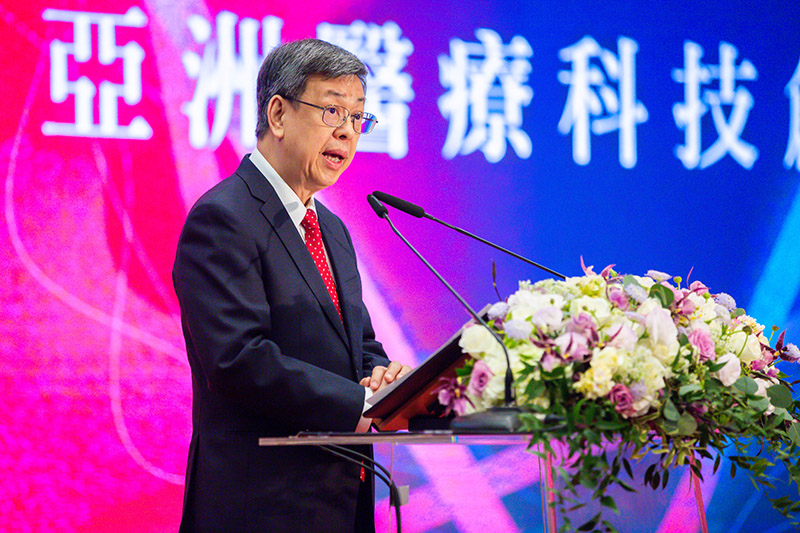
Chien-Jen Chen, Vice President
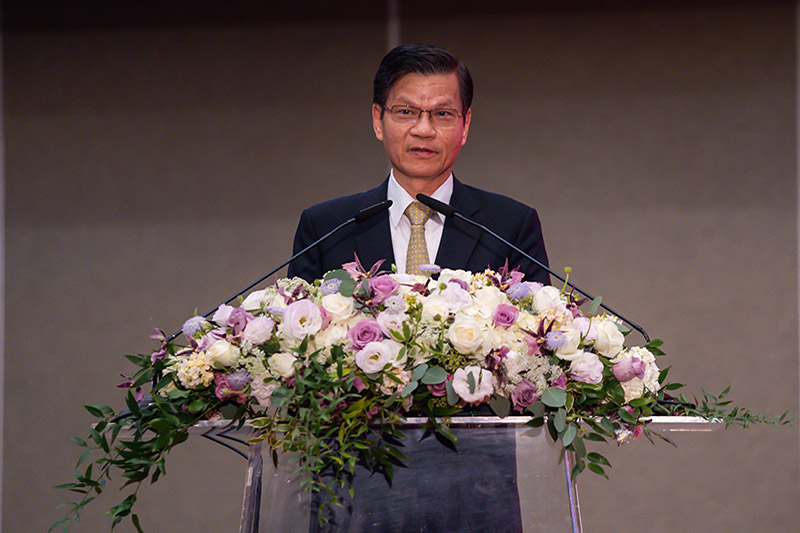
Chi-Huey Wong, President of IBMI
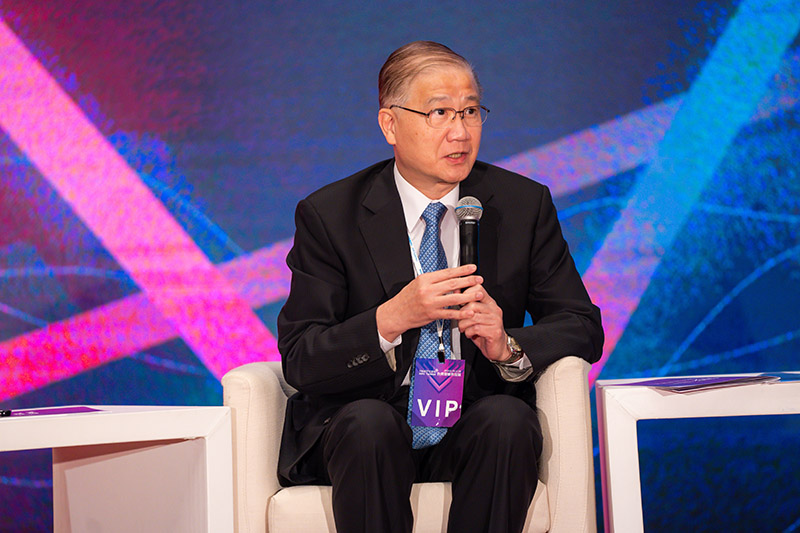
Moderater:Pan-Chyr Yang, Vice President of IBMI
Opening Session:CEO Summit
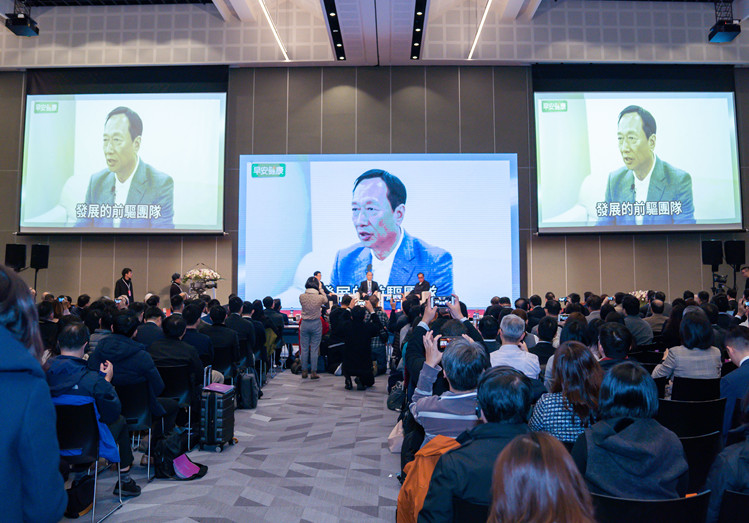
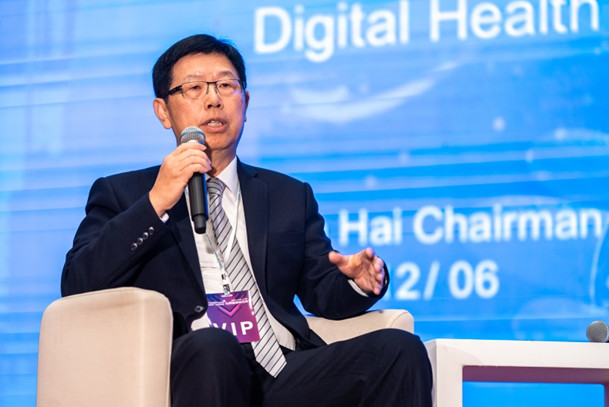
Foxconn Chairman Young-Way Liu said that digital healthcare presents an opportunity for Taiwan to leverage its expertise in IT. The future will see expanded cooperation with various platforms to integrate healthcare information to allow users to track their own health status via their smart phones. Hon Hai is rolling out a wide range of related products and services as the broader industry develops quickly over the coming three to five years. New innovations are continuously rolling out as critical breakthroughs are achieved, including new MRI and X-ray applications. Liu also pointed out that development of the broader healthcare industry requires intensive collaboration. In addition to close integration of domestic telecom operators with the biotechnology sector, the government must actively promote a positive business environment to allow these developments to bear fruit. “The right environment will naturally attract the best talent!” he said. He also noted that Quanta will be actively seeking collaboration opportunities in the future.
Barry Lam: “Precision health” requires a dialogue between the medical profession and the ICT industry, but will we actually have it?
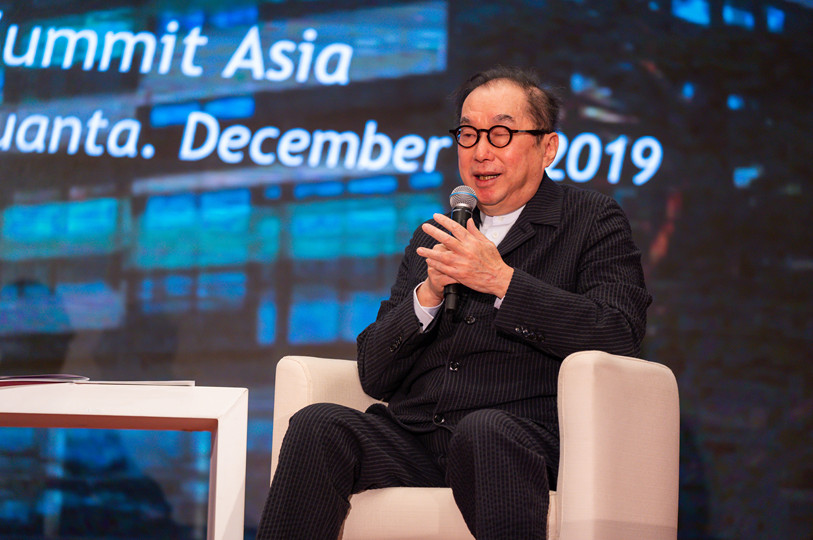
Quanta Chairman Barry Lam said that the integration of ICT into the biomedical industry presents a difficult challenge, and Taiwan’s ability to develop a large-scale healthcare industry hinges on an intense dialogue between the medical and ICT industries to promote innovation. According to Lam, precision medicine requires a comprehensive development roadmap consisting of 20% clinical data, 35% external environmental data, and 30% diagnostic (microbial and genetic) data, all integrated into cloud computing environments. He also pointed out that, at the current stage, hospitals face a critical challenge in collating large data sets, and suggested Taiwan hospitals adopt the FHIR data exchange standard currently promoted in the United States to allow for quick and effective health data exchange with unified standards. Currently, Lam said, Taiwan isn’t keeping pace with international developments, and he hopes that Taiwan can catch up through the investment of additional IT personnel and funding.
Plenary Session: Future Trends for Global Healthcare and Investment
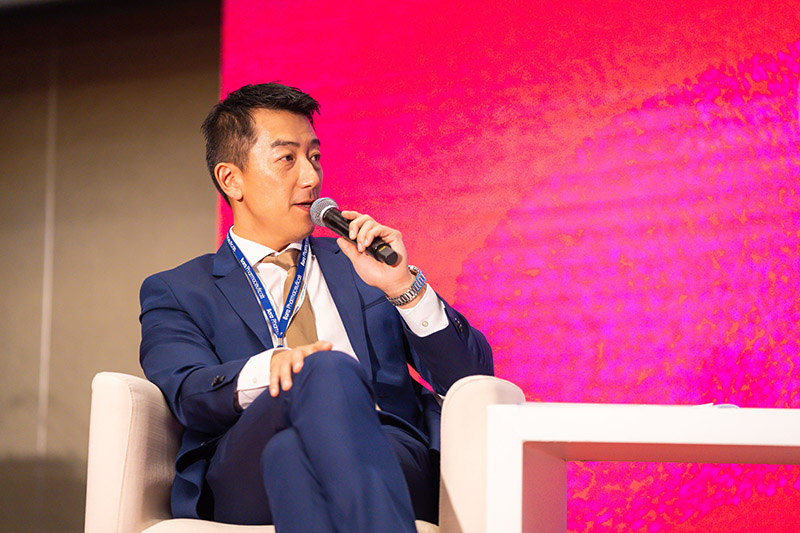
Moderater:Bobby Sheng, Chairman of Bora Pharmaceuticals
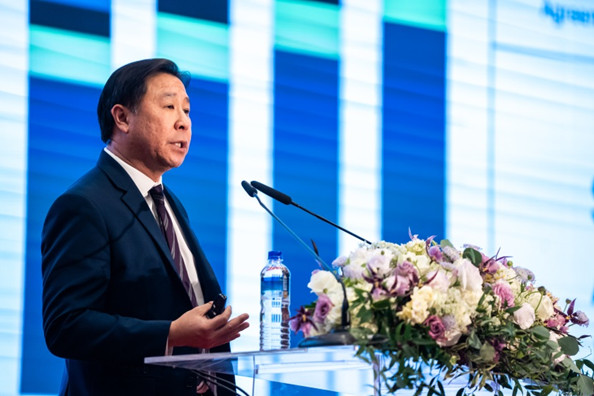
Trung Do, VP, Business Development, Partners Healthcare:Implementing large-scale medical innovation requires a strategic focus on the gap between healthcare innovation and commercialization.
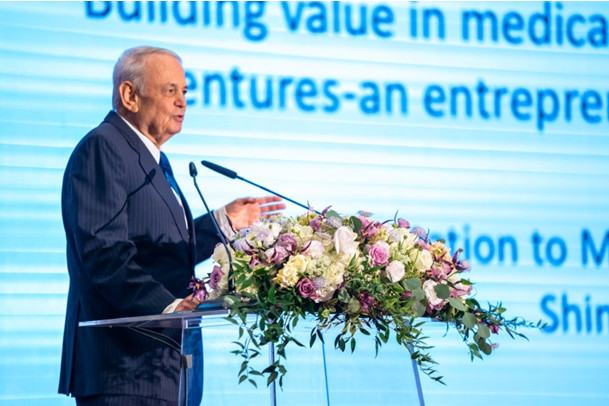
Shimon Eckhouse, Founder, Alon MedTech Ventures:All digital healthcare investments are hospital-based, and Taiwan has opportunities to link IT to hospitals.
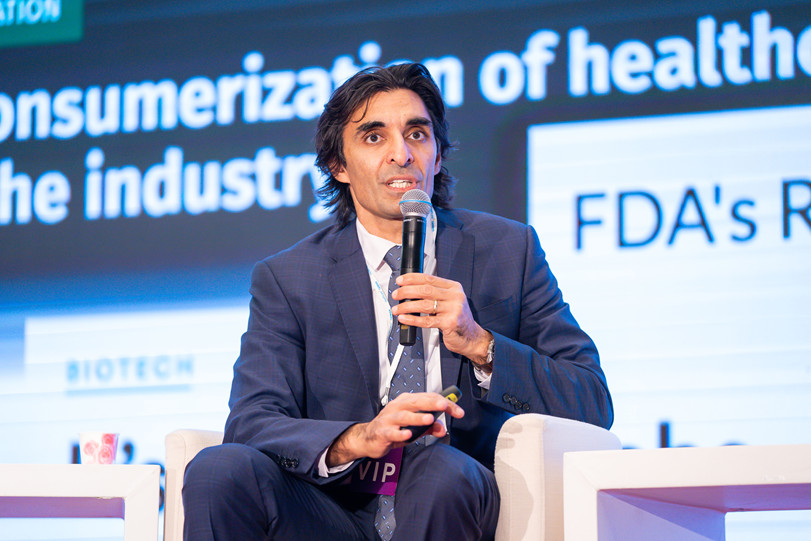
Amir Nashat, Partner, Polaris Partners:Global tech giants and Big Pharma are both increasing investment in data analysis, and Asia is the region to watch for future medical technology development.
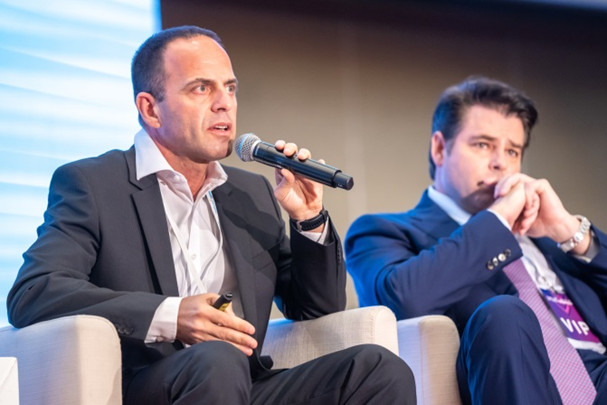
Guy Ezekiel, General Partner, Pitango Venture Capital:Digital healthcare will change from treatment to prevention, and will also impact pharmaceutical R&D and medical data analysis.
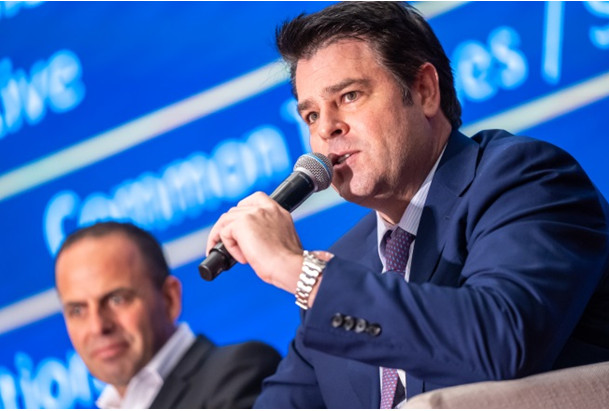
Banks Bourne, Founder & CEO, Bourne Partners:International pharmaceutical companies are moving towards differentiation and outsourcing, and Asian markets will create emerging trends.
Session I: New Evolution for Smart Healthcare
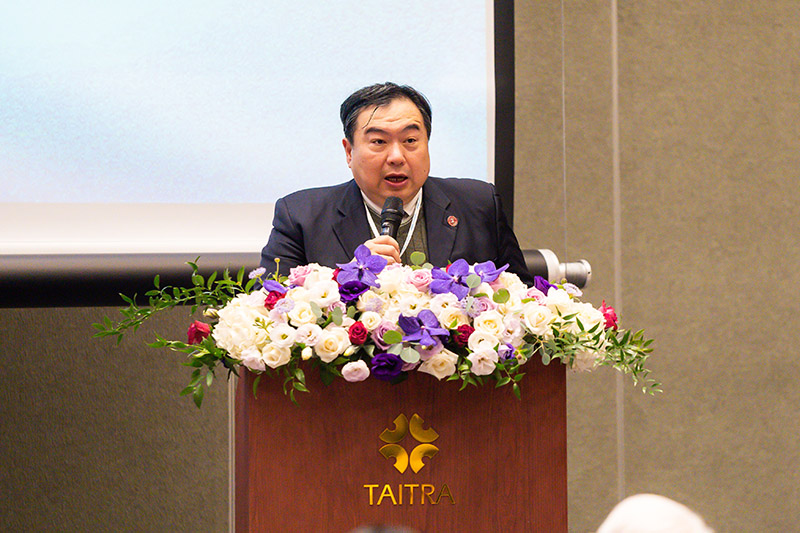
Moderator: Yu-Chuan (Jack) Li, Dean, College of Medical Science and Technology, TMU
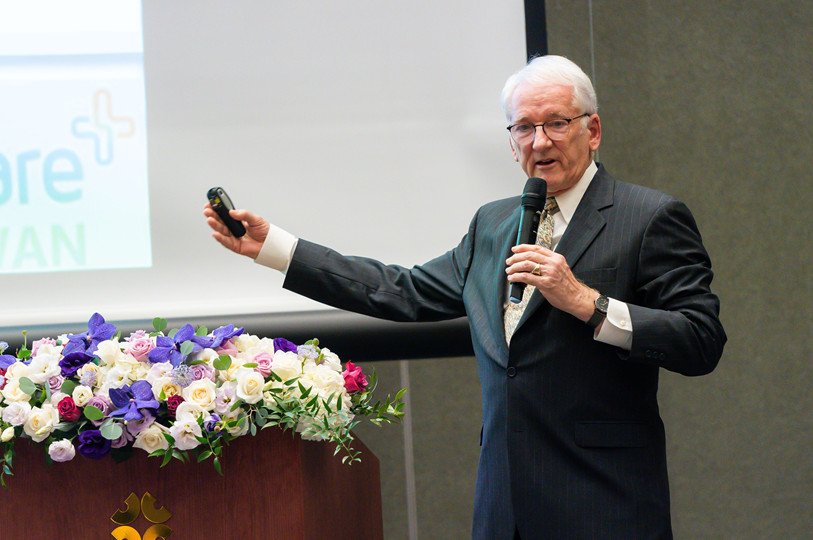
Edward (Ted) Shortliffe, Adjunct Professor, Columbia University:Healthcare powered by AI should emphasize ease of use to assist clinical decision-marking, and focus on improving clinical results and benefits.
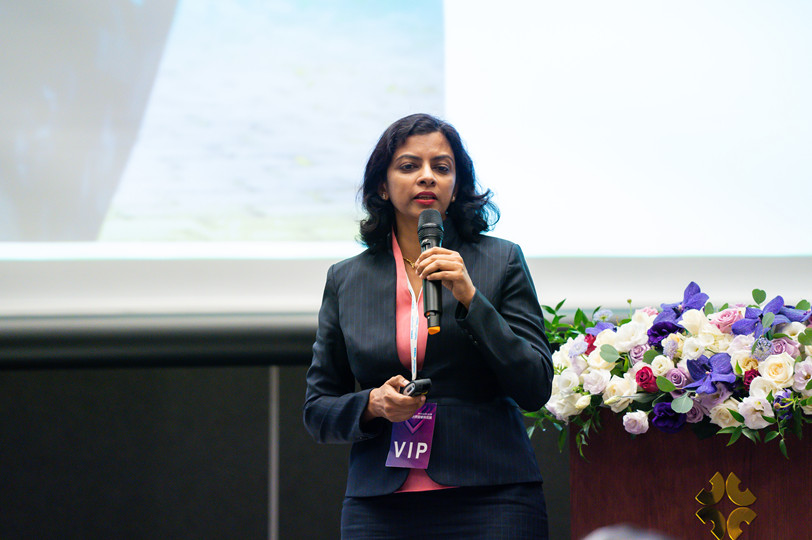
Keren Priyadarshini, Regional Business Lead, Healthcare, APAC, Microsoft:Technology companies should take advantage of its niche areas and from there they can help increase the value of medical innovation.
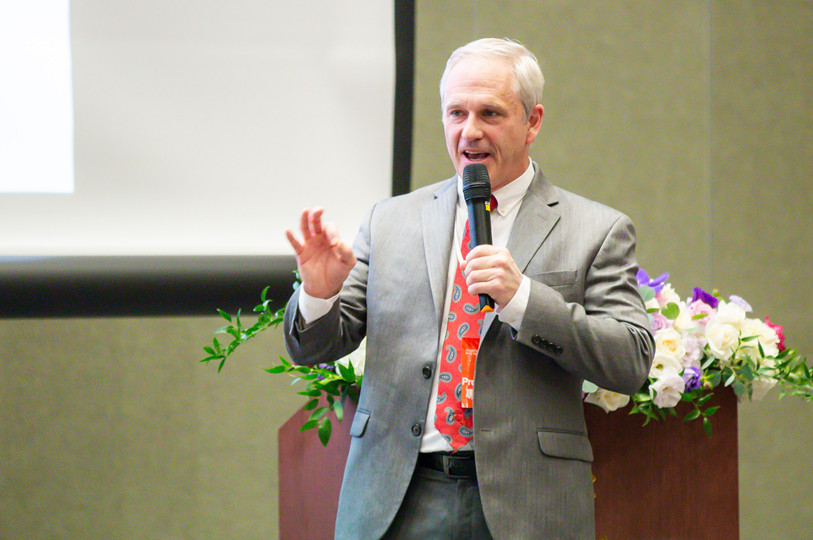
Director of Neuropathology, Coulumbia University Medical Center,Peter D. Canoll:Using AI to assist physicians to make a diagnosis depends on the level of maturity and accuracy of medical imaging recognition and interpretation.
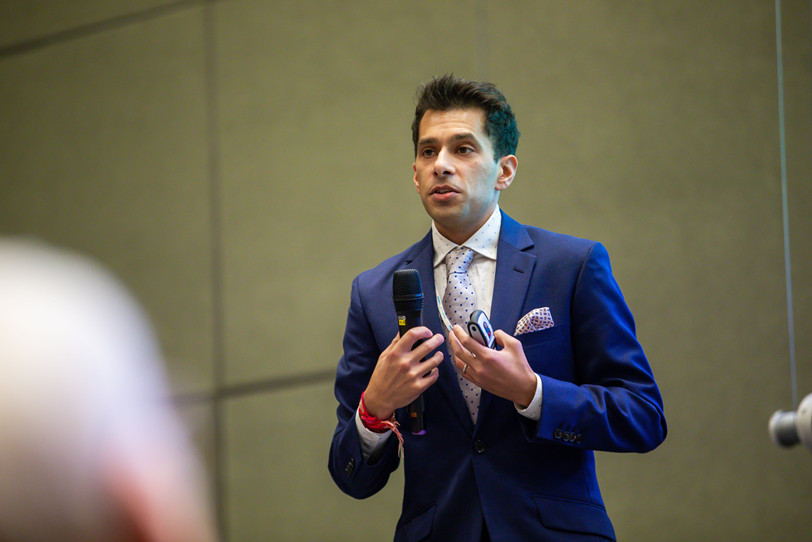
Sajan Khosla, Head of Real World Science & Digital,Astra Zeneca:Comparison of evidence and clinical data plays a key role in precision medicine.
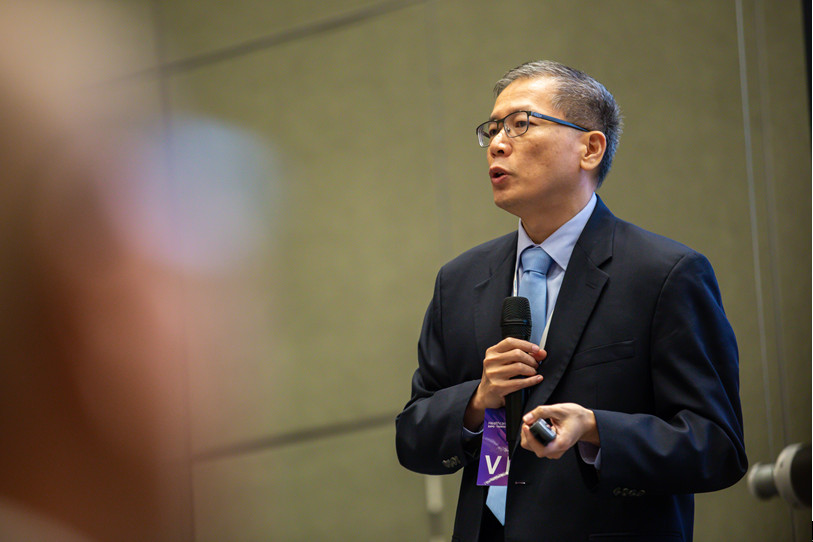
Jyh-Ching Yaur, VP, Head of Research and Innovation Hub Shanghai, Philips:Innovation should focus on deep insights into market demands, and allow end users to obtain optimal healthcare services through healthy competition.
Session II: New Vision for Cell Therapy
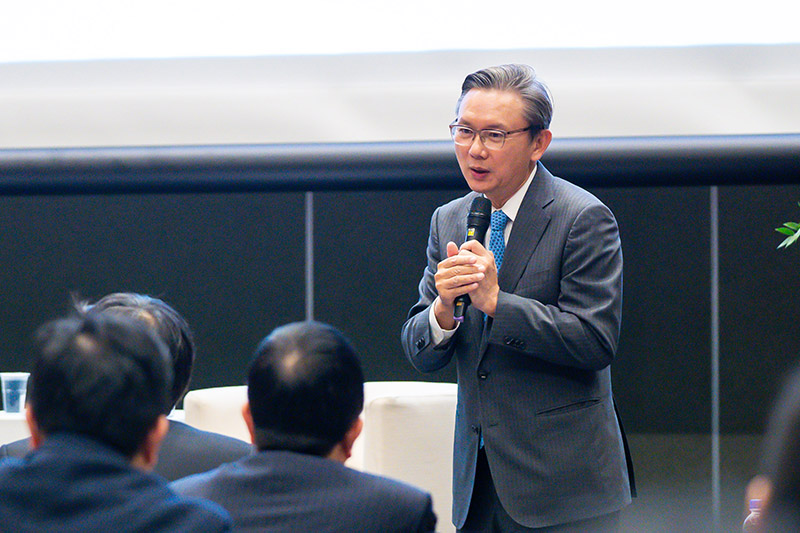
Moderator:Kun-San (Clifford) Chao, Vice President of China Medical University Hospital
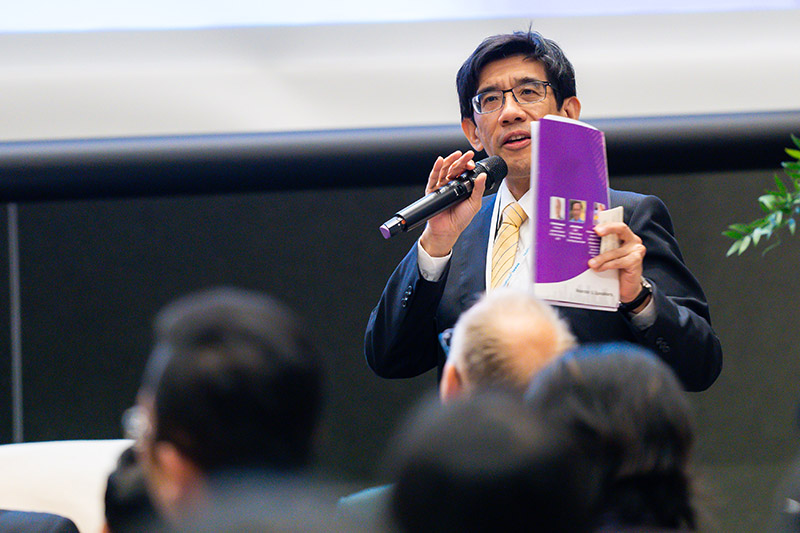
Moderator:Oscar Kuang-Sheng Lee, Distinguished Professor of National Yang-Ming University
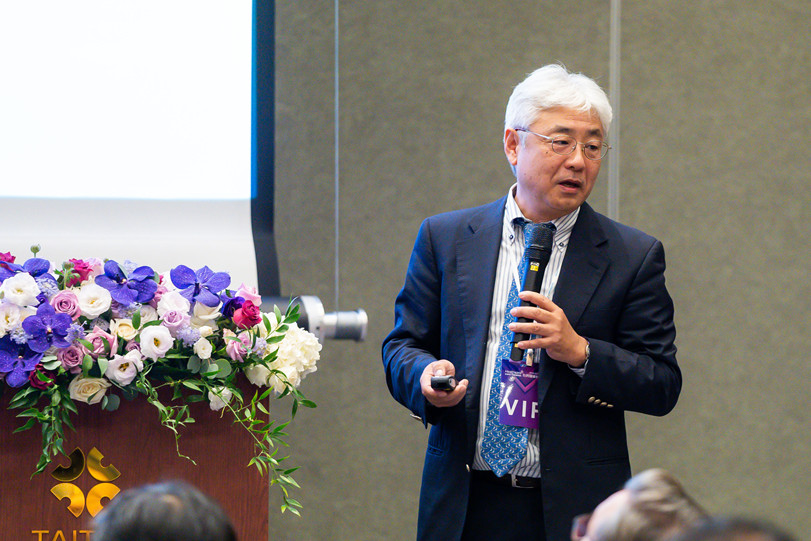
Shin Kawamata, Director of Research and Development Center for Cell Therapy, Foundation for Biomedical Research and Innovation (FBRI):Cell processing is highly complex, and standardization is needed to create safe and reliable cell processing systems.
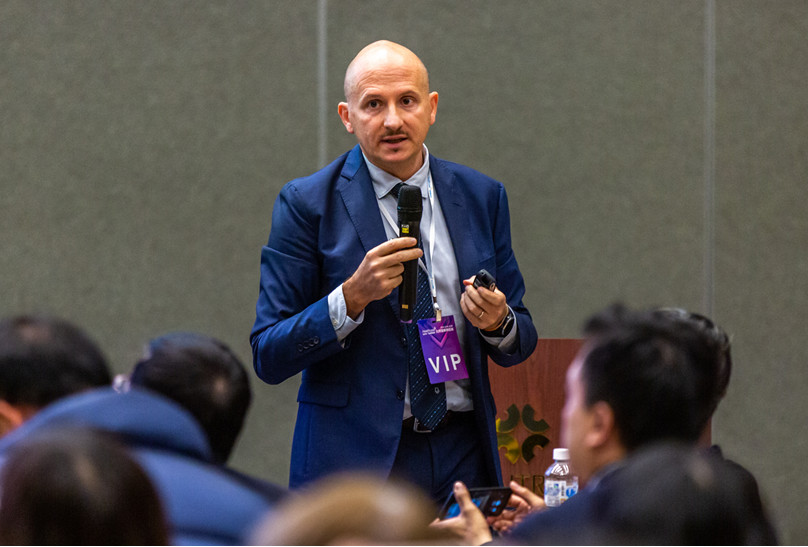
Hospital of Modena and Reggio Emilia (Former Chairperson of International Society for Cell & Gene Therapy):Cell and gene therapies are expensive, and reducing manufacturing and operating cost are a key challenge at the current stage.
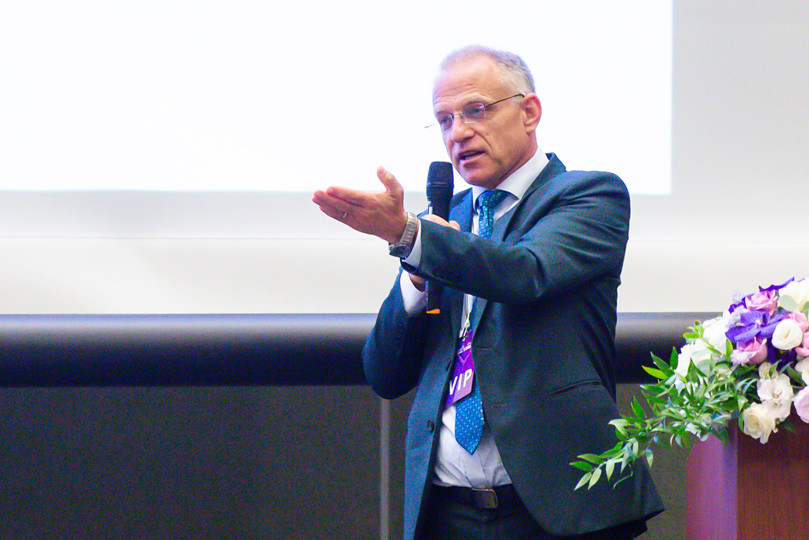
Markus Kalousek, Head of Pharma Search & Evaluation, Global BD&L, Novartis:CAR-T approval has overturned the limitations of past cancer treatment. A key issue is how to establish stable industrial supply chains.
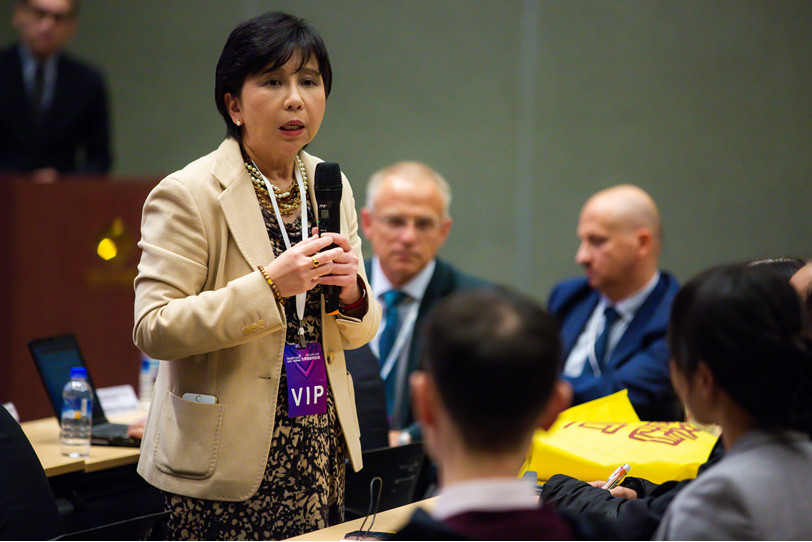
Mari Dezawa, Professor and Chair, Tohoku University Graduate School of Medicine, Department of Stem Cell Biology and Histology:The differentiation and regeneration mechanism of Muse cells can be applied to treat various diseases, and holds out new hope for cell therapy
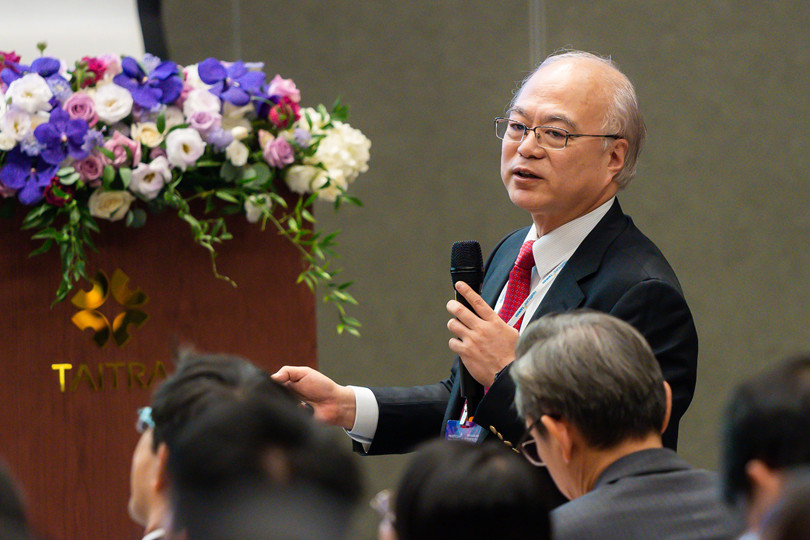
Yutaka Kawakami, Chairperson of Japanese Association of Cancer Immunology (JACI):Current research on cancer immunotherapies focus on six major directions, and practical applications have made great progress.
Session III: New Strategy for Pharmaceutical R&D
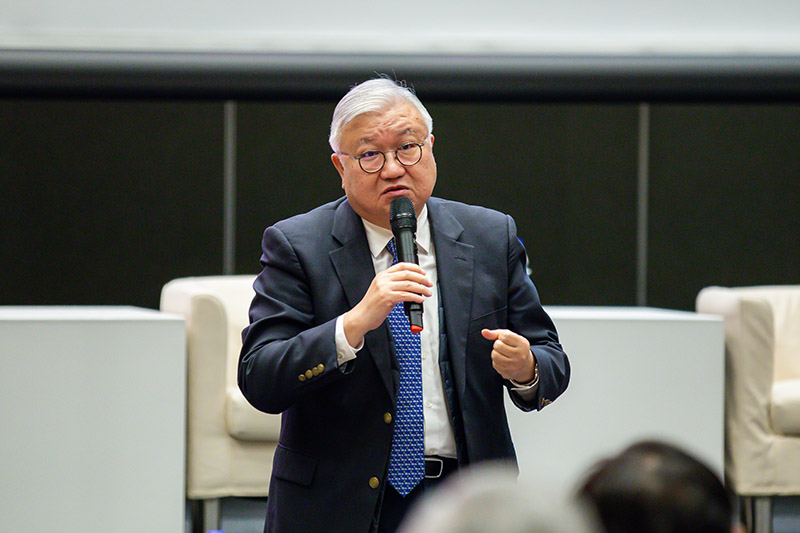
Moderator:Yen Yun, Chair professor of Taipei Medical University
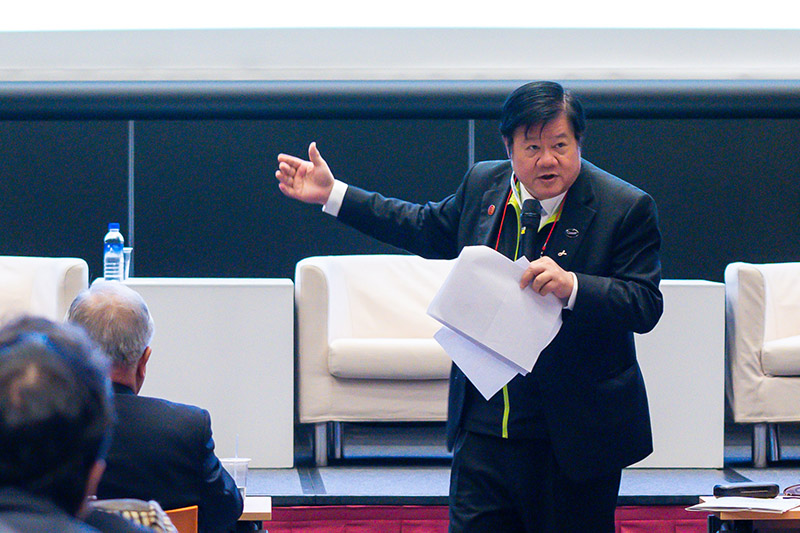
Moderator:Mien-Cie Hung, President of China Medical University
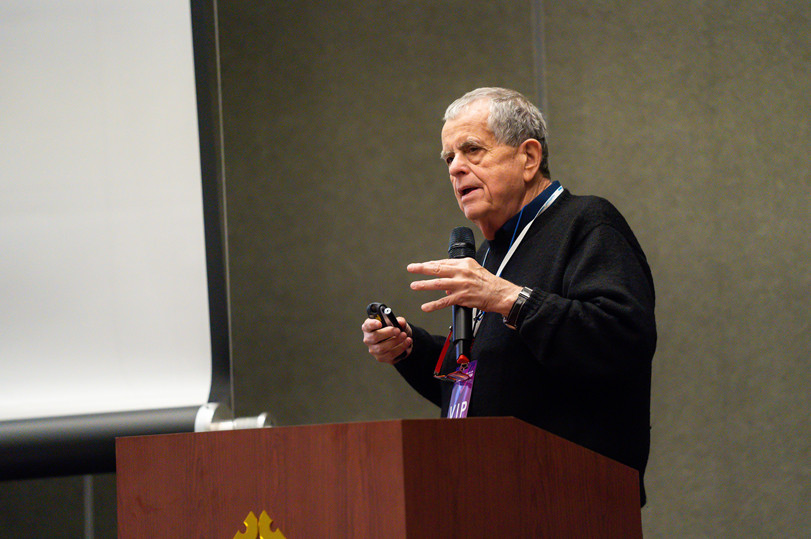
Aaron Ciechanover, Distinguished Technion Professor, Technion-Israel Institutes of Technology:In the era of personalized precision medicine, genetic testing will revolutionize new drug development.
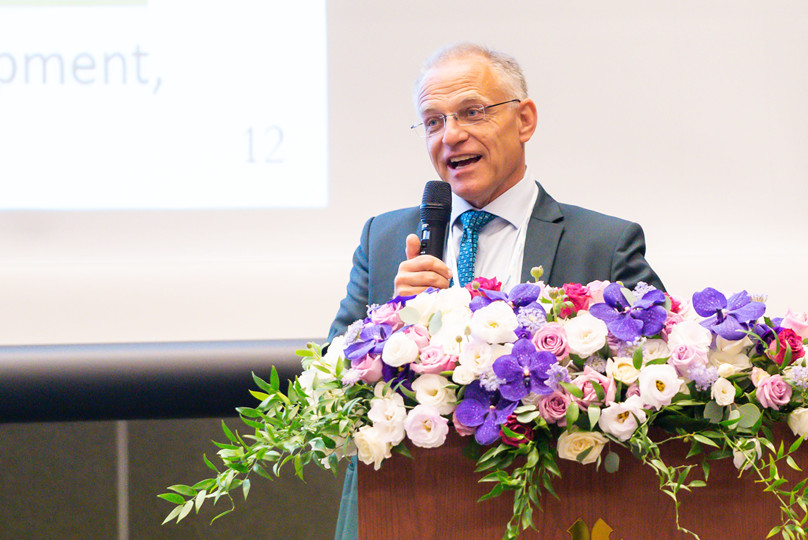
Markus Kalousek, Head of Pharma Search & Evaluation, Global BD&L, Novartis:The 80/20 rule provides a means of gradually improving understanding of the timing of drug evaluations, and this timing needs to be carefully controlled.
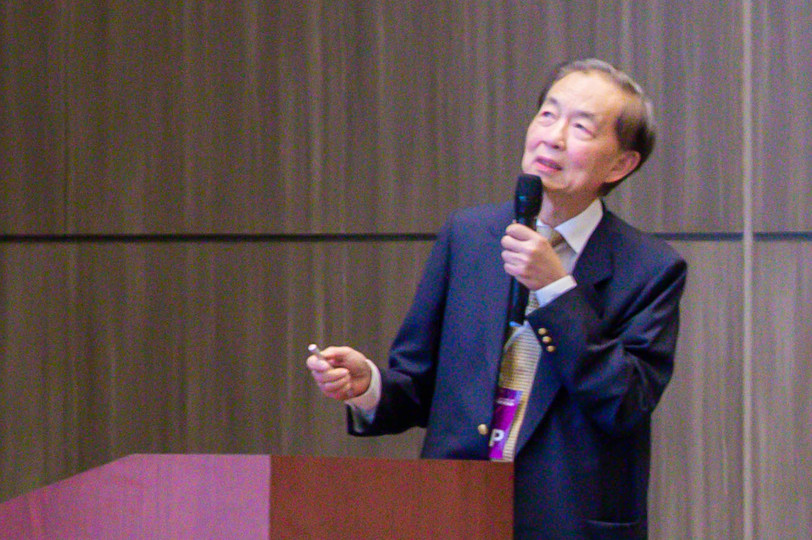
Nelson Teng / Professor of Obstetrics and Gynecology (Oncology)/ Stanford University:The IgM technology platform creates significant competitive advantages and can be used as the basis for developing multiple IgM therapeutic drugs.
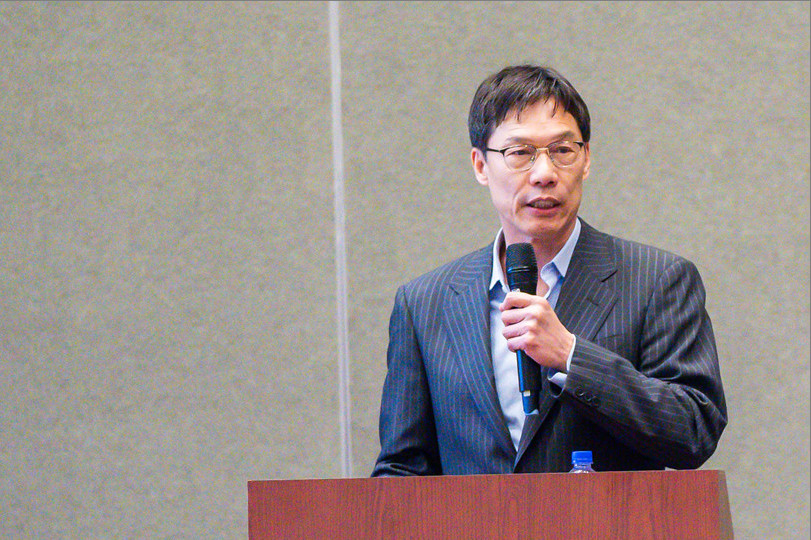
Michael Su, Chief Scientific Officer, Decibel Therapeutics:Unlike traditional chemotherapy, IDH inhibitors open up new approaches to cancer treatment.
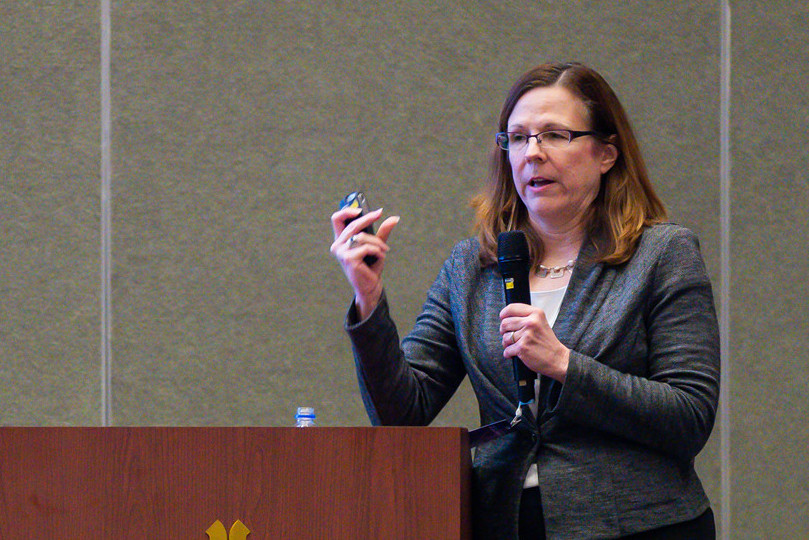
Wendy Cornell, Global Lead IBM Research Drug Discovery Capabilities, IBM:Optimization of AI algorithms and data allows for better understanding and analysis of small molecule drug discovery.
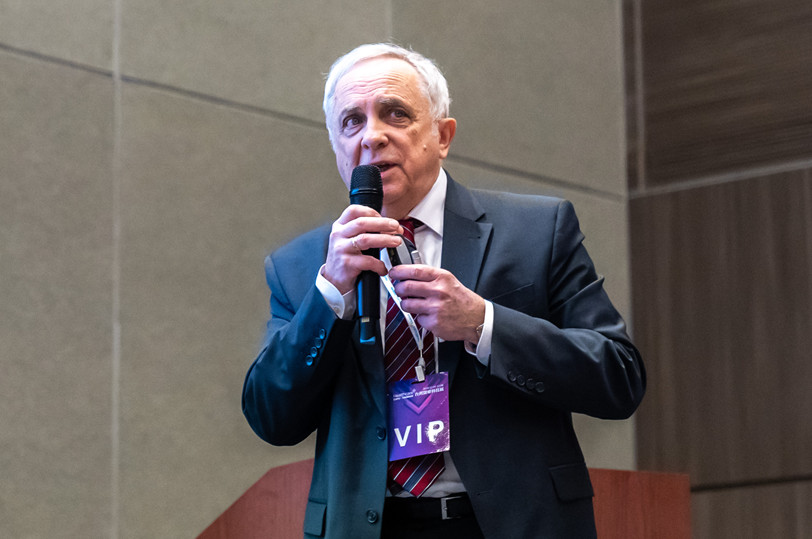
Michael Ugryumov, President, Russian Society for Neuropsychology:Guiding breakthrough technologies and the development of early diagnosis techniques to prevent the progression of neurodegenerative diseases present a new blue ocean market.
▍MEDTEX Summit Asia Highlights
Barry Lam and Young-way Liu, chairmen representing ICT giants Foxconn and Quanta, projected their views on ICT in healthcare
Barry Lam and Young-way Liu, chairmen representing ICT giants Foxconn and Quanta, projected their views on ICT in healthcare and suggested that the ICT industry would need a decade to see its development to bear fruit. (Read More)
The US alone went from $4.5bn in 2016 to $8.1bn in 2018- almost doubled in two years, especially in digital healthcare.
Senior executives and funders representing Israeli VCs Alon MedTech and Pitango, America’s Partners Healthcare, Polaris Partners and Bourne Partners, shared market specific insights of healthcare investment. The US alone went from $4.5bn in 2016 to $8.1bn in 2018- almost doubled in two years, especially in digital healthcare. (Read More)
The Evolution of AI and Healthcare Informatics: Assessing the Past as We Pursue the Future
Known as a pioneer in the use of AI in medicine, Edward H. Shortliffe gave his speech on smart healthcare and addressed that usability should be taken into account when applying AI to support clinical decision making. (Read More)
'New Vision for Cell Therapy' drew a conclusion that the supply chain remain a key challenge in terms of manufacturing and commercialization.
Leading experts in cell-based therapy, including a Japanese scientist Mari Dezawa known for her Muse cell research, presented in ‘New Vision for Cell Therapy’ and drew a conclusion that the supply chain remain a key challenge in terms of manufacturing and commercialization. (Read More)
The Revolution of Personalized Medicine - Are we going to cure all diseases and at what price ?
Personalised medicine continues to dominate the 21st century healthcare revolution, according to Aaron Ciechanover, the winner of the Novel Prize in Chemistry 2004, said in his speech regarding pharmaceutical R&D. (Read More)
